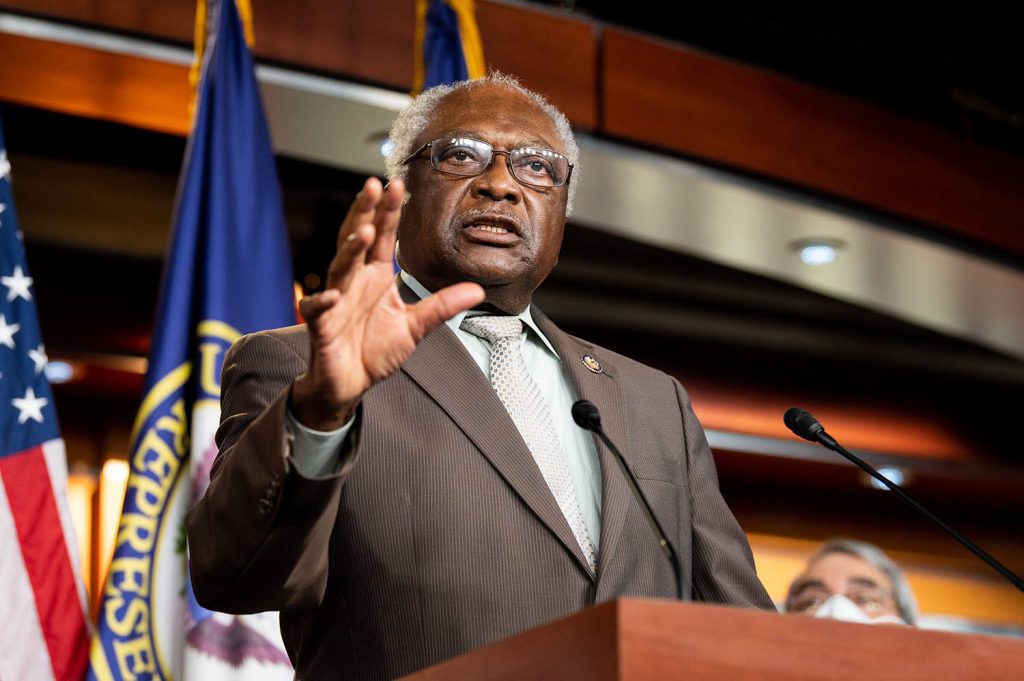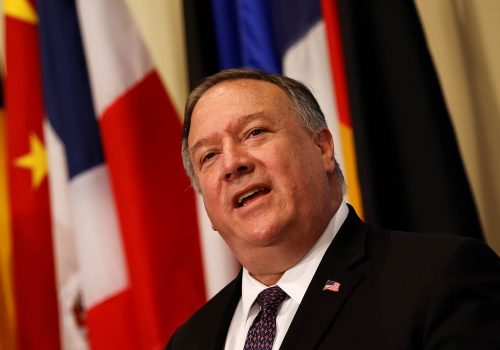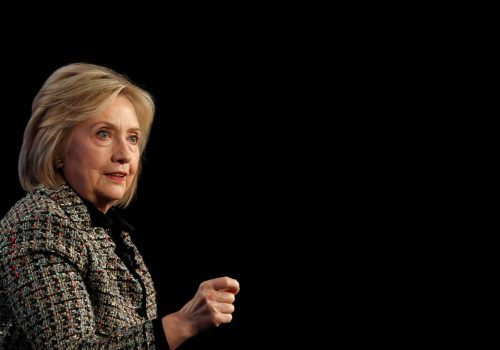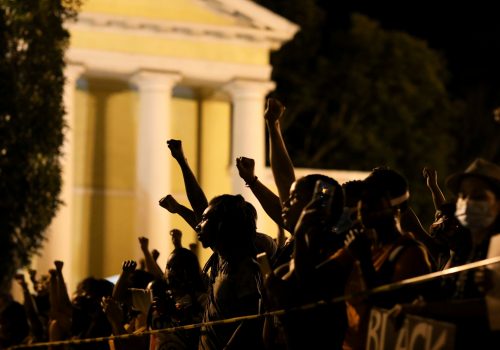The COVID-19 pandemic has “demonstrated that there are some significant fault lines in the” United States, according to US House Majority Whip James E. Clyburn. Against the backdrop of the country’s struggles to overcome the coronavirus outbreak and national unrest over racism and inequality, “The question now becomes whether or not we are going to be able to repair those faults.”
America’s continued leadership in the world, the South Carolina congressman argued during an Atlantic Council Front Page event on September 22, depends on the answer—and the United States has the capacity to answer in the affirmative. “It is going to take having to come back from some things, but we’ve done that before,” said Clyburn. In fact, he noted, that’s the “magic” that Alexis de Tocqueville, the 19th-century French sociologist, attributed to the United States: that what made the country great was not that it is “more enlightened than any other nation, but rather because we’ve always been able to repair our faults.”
Here are some highlights of what Clyburn said about US influence abroad, the pandemic’s impact on congressional priorities, and the kind of leadership that makes it possible for the country to repair its faults.
The United States must lead by example
- Renewal at home = renewal abroad: When the United States fails to abide by its creed of “liberty and justice for all” at home, it undermines the nation’s influence abroad, Clyburn asserted. We “cannot believe for one moment that we’re going to have a domestic policy on one track and foreign policy on another track.” Renewal at home and more effective US engagement abroad “complement each other” and are “not a tradeoff,” he argued.
- In today’s world, the US will be held to account: “There may have been a time in our history when [the US] could profess one thing and do another,” and still maintain its global standing, Clyburn noted, “but that’s not going to be the future.” The country has long presented itself as, in Ronald Reagan’s words, a “shining city upon a hill,” and in many cases it has been that, but until now it has “never really been held to account for whether or not all of our practices have borne that out,” he said. “Going forward, that is going to be the case. The world is getting smaller and smaller every day, and as a result of that the things that we say and do are heard and seen instantaneously around the world.”
- Darkest before dawn: While some liken America’s national struggles to “darkness,” Clyburn asserted that “dawn will arrive, and we will overcome this.” He agreed with the argument made by US Senator Chris Murphy that the current anti-racism movement, if embraced by US leaders, could place the country in a position to help shore up and advance democracy around the world. Speaking from his own experience campaigning for civil rights (and being jailed for it) in the 1960s, Clyburn noted that democracies don’t move “on a linear plane” but rather like “a pendulum.”
- Foreign-policymaking powers in play: While the Constitution grants Congress foreign-policy powers, Clyburn agreed that much of the legislative body’s role has shifted to oversight of the executive branch’s conduct of international affairs, diminishing its power in shaping American statecraft. He was uncertain about this balance of power in the future. “We’ll know after the November 3 elections whether or not [Congress] is in the right place” to mold US foreign and national-security policy, he added.
Watch the full event with Representative Clyburn:
COVID could transform the work of Congress
- A new focus on the home front: Although the pandemic has presented US policymakers with immense challenges, Clyburn said that he expects the crisis to reshape spending priorities in Congress “in a very positive way” by forcing lawmakers to “get serious about doing what’s necessary for education to be more adequate than it is today, for healthcare to be more available than it is today, and for housing to be more affordable than it is today.” As an example, he cited the fact that the pandemic has revealed the need to expand broadband access nationwide so that students can attend online classes and doctors can connect with patients for telehealth appointments.
- A moment for ‘10-20-30’?: Clyburn believes that the pandemic, which has hit communities in the United States inequitably, has underscored the need to take what he calls a “10-20-30” anti-poverty approach that allocates 10 percent of any federal agency’s appropriated programmatic funds to communities where the poverty level has been 20 percent or higher for the past thirty years. “We have got to begin to invest in these communities” struggling with “persistent poverty,” he said.
Leadership is borne of “blessed experiences”
- Lewis and Ginsburg show the system can be transformed: Reflecting on the deaths this year of former US Congressman John Lewis and former US Supreme Court Justice Ruth Bader Ginsburg, Clyburn noted that despite having faced racism and sexism, respectively, they continued to push for change. “Those are two of the best examples we can have as to why you shouldn’t give up on the system,” he said. While the challenges they faced were not “pleasant,” he noted that tough experiences can also be “blessings.” Americans can honor Lewis and Ginsburg by striving for equality in the face of adversity, he said: “Make the commitment and do not be deterred by the obstacles that may get in your way.”
- Diversity in leadership matters: Reflecting on his experience, Clyburn credited his time leading his local NAACP youth council with helping catapult him to Congress. He commended the Atlantic Council’s Diversity, Equity, and Inclusion Council for its work to “help shape international thought about this country. That’s got to happen. I don’t see us being successful as a country if it doesn’t happen.”
Katherine Walla is assistant director of editorial at the Atlantic Council.
Further reading:
Image: U.S. Representative Jim Clyburn (D-SC) speaking at a press conference about H.R.7573, proposed legislation to remove all statues of individuals who voluntarily served the Confederate States of America from display in the United States Capitol. Photo by Michael Brochstein/Sipa USA, via Reuters



